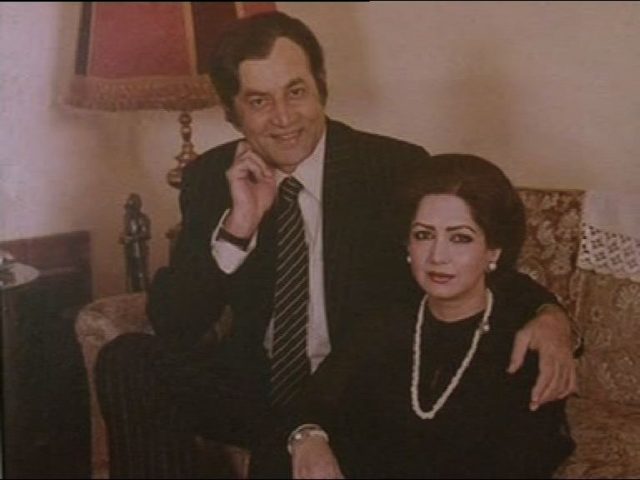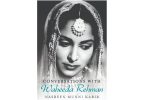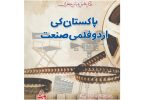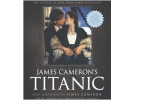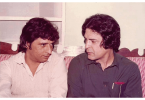By: Omair Alavi Mohammad Ali was considered as one of the best dramatic actors of his time, yet he was behind the many successful songs of his era as well. Here we take a trip down the memory lane where we get to hear 15 of his most famous numbers and try to decipher the…
SAMAA | Omair Alavi – Posted: Mar 19, 2017 | Last Updated: 4 years ago
By: Omair Alavi
Mohammad Ali was considered as one of the best dramatic actors of his time, yet he was behind the many successful songs of his era as well. Here we take a trip down the memory lane where we get to hear 15 of his most famous numbers and try to decipher the phenomenon that was Mohammad Ali.
Main Nahi Maanta (Khamosh Raho – Khalil Ahmed – 1964)
This is the song that established Mohammad Ali as the young angry man, long before Amitabh Bachchan came on the scene. Written by none other than Habib Jalib and sung by Ali bhai’s most frequent collaborator Ahmed Rushdi, it depicts the words strongly on screen and the song was even banned for some time since it was directly addressing the Military dictator of the time, General Ayub Khan.
Tumhi Ho Mehboob Mere (Aaina – Manzoor Ashraf – 1966)
Believe it or not, Aaina was one of the first films Mohammad Ali did as a hero – earlier he either played supporting roles or was the lead villain of the film. In this Masood Rana number, he shows glimpses of what was to come in the future and Mohammad Ali went onto become one of the biggest names of Pakistan’s film industry.
Yun Zindagi Ki Raah Main (Aag – Nisar Bazmi – 1967)
What would you say if I told you that Mohammad Ali was playacting in this sequence, passing on as a bind man! That’s exactly what he was doing and Mehdi Hassan’s rendition makes you love the character even more.
Jaise Jantay Nahi (Aag – Nisar Bazmi – 1967)
Mohammad Ali was at his best in this S Suleman-directed film as he displayed shades of comedy at ease; in this song he addresses the leading lady, making her angry and others happy in the process. Ahmed Rushdi was at his best as the vocalist while the antics of Lehri were unmatchable
Aise Bhi Hain Meherbaan (Jaise Jantay Nahin – Nisar Bazmi – 1969)
Possibility the most romantic song of all times, Ahmed Rushdi moulds his vocals to match the sophisticated version of Mohammad Ali who is at ease as the romantic lead with 2 heroines in the scenic locations. Had it been filmed on another leading man, he might have mishandled it because it’s the face of Ali bhai that comes in mind when one listens to this evergreen track.
Jab Koi Pyaar Se Bulayega (Zindagi Kitni Haseen Hai – M. Ashraf – 1969)
I might not be wrong if I say that this ‘Tumko Ik Shakhs Yaad Aayega’ is the most quoted line in Pakistan because that’s exactly what it is. The song, its rendition, its filming, everything is right with this number that has been wonderfully sung by Mehdi Hassan.
Ranjish Hi Sahi (Mohabbat – Nisar Bazmi – 1971)
Lyrics by Ahmed Faraz, composition by Nisar Bazmi and you have a super hit number rendered by none other than Mehdi Hassan. Although there are songs by Ahmed Rushdi in this movie, Ranjish comes out as the winner.
Kyon Hum Se Khafa Hogaye (Salam e Mohabbat – Khursheed Anwar – 1971)
Mohammad Ali films this soulful song in an appropriate to the lyrics location and comes out as a winner, thanks to Mehdi Hassan who sang the most number of songs for the actor – a handful more than Ahmed Rushdi.
Hai Beqarar Tamanna (Mere Humsafar – Sohail Rana – 1972)
This is easily Mohammad Ali’s first film abroad and he is at ease lip-syncing Mujeeb Alam’s vocals in beautiful locations of Europe.
Waada Karo Milo Gay (Mere Humsafar – Sohail Rana – 1972)
And here it is Ahmed Rushdi making Ali bhai look even better as he promises Shabnam in European gardens. The twist in the tale is that Mohammad Ali was playing a secret agent in the movie, a role that was written for Waheed Murad whom he replaced a few days before the shooting.
Woh Aa To Jaye Magar (Ajnabi – Nisar Bazmi – 1975)
Before he sang this song, Ghulam Abbas was an assistant to various musicians and was labelled as a wannabe Mehdi Hassan. After singing this amazingly penned song that was made evergreen by Mohammad Ali, he became a threat to both Ahmed Rushdi and Mehdi Hassan and continues to sing till this day.
Aagay Aagay Mohtarma (Aapka Khadim – Khalil Ahmed – 1976)
There was always a funny side to Mohammad Ali which he displays in this song, also featuring his wife. He is seen running around trying to woo the leading lady and manages to do so, thanks to the amazing vocals of Ahmed Rushdi who kept on singing for the actor till his death in 1983.
Thehra Hai Samaa (Amber – Robin Ghosh – 1978)
Nazrul Islam’s film started with this song in which Mohammad Ali is shown romancing Deeba, who passes away after giving birth to their son. There is nothing in the room except the two actors and furniture, yet Mehdi Hassan’s vocals and Robin Ghosh’s composition make it worth your time.
Main To Jala (Aag – M. Ashraf – 1979)
Even A. Nayyar wouldn’t have known how famous thing song of his would become after it was labelled as a Mohammad Ali number. The veteran actor depicts the emotions of a broken man and keeps you engrossed with his mannerisms and actions which are better than any of his contemporaries.
Yeh Dil Main Rehne Walay (Badaltay Rishtey – Nazir Ali – 1983)
Mohammad Ali continued to act in the 80s although he was getting character roles written with him in mind, something that is being done for Amitabh Bachchan these days. In this song, he shows his love for his daughter played by Babra who has been adopted by Afzal Ahmed, making it an interesting situation. Observe the tears that come out naturally and make you feel the pain of the character.

